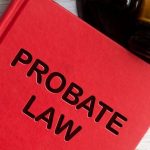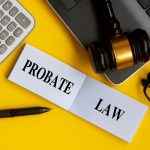Recent Blog Posts

How Does a Florida Trust Beneficiary Challenge a Trustee’s Decisions?
Unlike probate estates, Florida trusts are generally not subject to ongoing court supervision. A trust is effectively a private matter between the settlor–the person who creates the trust–the trustee, and the beneficiaries. Of course, legal disputes can and do arise over the administration of a trust. For example, a beneficiary may wish to challenge… Read More »

When Is a “Surviving Spouse” Not a Surviving Spouse?
When a married person dies, their surviving spouse enjoys certain rights and protections under Florida law. For example, a surviving spouse continues to enjoy any homestead property rights with respect to the primary residence. A surviving spouse can also claim a “family allowance” of up to $18,000 for their maintenance while their deceased spouse’s… Read More »

What Is “Conversion” Under Florida Law?
Conversion is a form of civil theft. Florida courts have defined conversion to mean “the exercise of wrongful dominion and control over property to the detriment of the rights of its actual owner.” Essentially, if someone else has your property, and they refuse to return it to you upon demand, they have engaged in… Read More »

Does a Power of Attorney Let You Act as Someone’s Lawyer?
A power of attorney is a legal document designating someone to act as your agent for certain purposes. For example, if you want to sell your home but cannot be present at the closing, you could sign a limited power of attorney authorizing an agent to sign the closing papers on your behalf. In… Read More »

Can a Florida Judge Order an Investigation into a Trustee Without Warning?
Special needs trusts are a legal tool used to help individuals retain their eligibility for public assistance programs like Medicaid, which impose strict income and asset limits. In some cases, it may be impractical to establish a dedicated special needs trust for a single beneficiary. So instead, a Florida court may authorize transferring certain… Read More »

Do Witnesses to a Will Actually Have to Testify in Court?
Florida law has strict requirements when it comes to witnessing a last will and testament. The person executing the will–who is known as the testator–must sign the written will in the presence of at least two witnesses. The witnesses can be effectively anyone. State law only requires that they be a “competent” person, i.e.,… Read More »

Who Gets Paid First When a Florida Probate Estate Is Insolvent?
Before any heirs or beneficiaries of a Florida probate estate can receive an inheritance, certain debts and expenses of the deceased must be paid. Indeed, it is not uncommon for an estate to be “insolvent,” meaning there are insufficient assets to pay all of the accumulated debts and expenses. So if there is not… Read More »

What Happens to a Florida Business After the Owner Dies?
A person’s estate often includes more than personal assets such as their home or car. It may also include their ownership interest in a business. So what happens to that business? The answer to that question will largely depend on how the business itself was legally structured and what plans the deceased made in… Read More »

How Disposing of Non-Probate Assets Differs from Probate Assets
Not all of a person’s assets pass through probate after they die. A common example of a non-probate asset is a retirement account like an IRA. The IRA is effectively a contract between the account owner and the institution that acts as the account’s custodian. This contract includes a beneficiary designation. Upon the account… Read More »

O.J. Simpson’s Executor Quickly Reverses Course on Paying Goldman Wrongful Death Judgment
The recent death of former NFL player O.J. Simpson almost immediately led to a public controversy involving his longtime attorney, who is now the executor of his estate. Specifically, the executor made–and was then forced to backtrack–public comments he made regarding the estate’s liability for a multi-million dollar civil judgment obtained by Simpson’s former… Read More »

 Mark R. Manceri, P.A. is a boutique law firm that specializes in Estate, Trust and Guardianship litigation. These matters include Will and Trust contests involving lack of capacity, undue influence, forgery, improper execution and tortious interference...
Mark R. Manceri, P.A. is a boutique law firm that specializes in Estate, Trust and Guardianship litigation. These matters include Will and Trust contests involving lack of capacity, undue influence, forgery, improper execution and tortious interference...